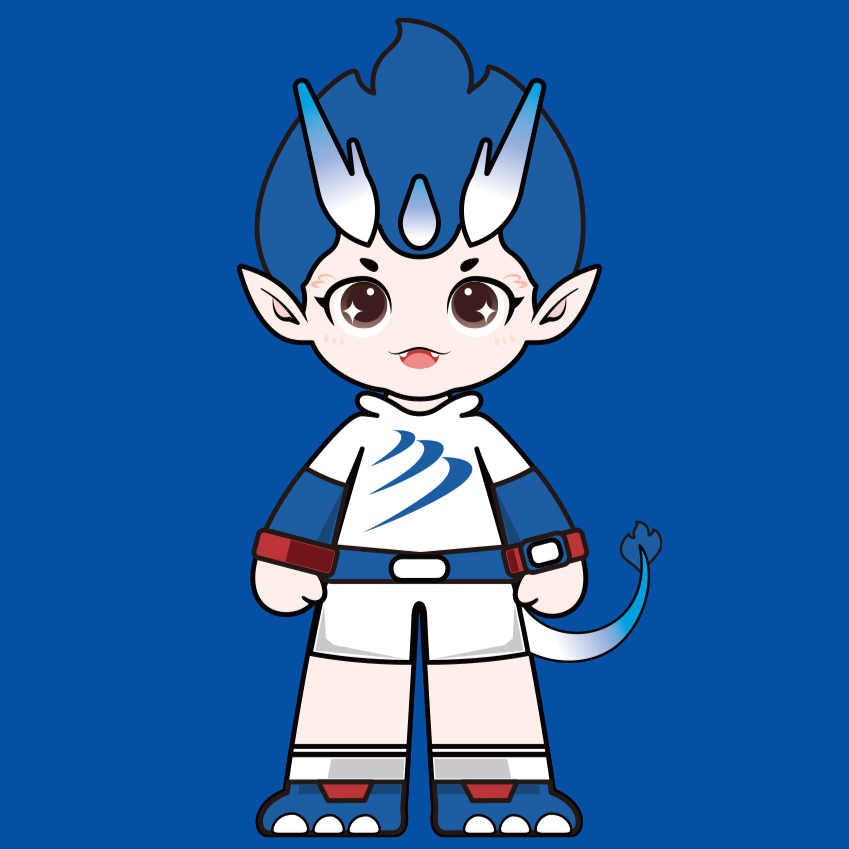
一般过去时的用法
A say goes 是一般现在时,A say went 是一般过去时。
一般过去时的基本用法:一般过去时表示过去某个时间发生的动作或存在的状态,也可表示过去经常或反复发生的动作。常和表示过去的时间状语连用,如yesterday, last week, last night, in 2003, two days ago等。
例如:I got up at 6:30 yesterday. 我昨天6:30起床。My father was very busy last week. 我父亲上周很忙。
扩展资料:
(1)It's said that+句子意思是:据说,俗话说?
(2)As the saying goes 俗话说
(3)There is a saying that有一句俗话说
(4)There is an old saying that.或者There is a proverb that俗话说,有一句谚语/有一句俗话说
参考资料:百度百科:一般过去时
 Sigma-Aldrich
Sigma-Aldrich
2018-06-11 广告
2024-01-11 · 百度认证:云南新华电脑职业培训学校官方账号
 云南新华电脑学校
云南新华电脑学校

一般过去时用来表示过去某一时间内发生的动作或存在的状态以及过去习惯性、反复性的动作。谓语动词要用动词的过去式,常和表示过去的时间状语连用,如yesterday昨天、last night昨晚、last week上周、last year去年,等。
二、一般过去时的结构:(可分4类不同的结构)
1.Be动词的一般过去时
(1)在没有实义动词的句子中使用be动词, am is 的过去式为was; are的过去式为were
(2)肯定句式:主语 + be(was , were) + 其它.
I was very shy two years ago.
(3)否定句式:主语 + be(was , were) + not + 其它.
I was not very shy two years ago.
(4)一般疑问句:Be(was , were) + 主语 + 其它?
Were you very shy two years ago?
注:在这种构成中,be动词有人称和数的变化,即要根据主语选用was / were。Be动词分为单数和复数,was是表示单数,were是表示复数。
2. 实义动词的一般过去时态
肯定句要使用动词的过去式,否定句和疑问句要使用助动词do和 does 的过去式 did.
肯定句式:主语 + 动词(过去式)+ 其它
I ate breakfast 2 hours ago.
否定句式:主语 + didn’t + 动词(原形)+ 其它 【did not = didn’t】
I did not eat breakfast 2 hours ago.
一般疑问句:Did + 主语+ 动词(原形)+ 其它【do , does的过去时均为did】?
Did you eat breakfast 2 hours ago?
注:did和didn’t 是构成一般过去时的助动词,其特点是要在其后跟动词的原形。
3. 情态动词的一般过去时态
含有情态动词的一般过去时与含有Be动词的一般过去时,是十分相似,请注意观察。
肯定句式:主语 + 情态动词 + 其它.
She could sing well when she was young.
否定句式:主语 + 情态动词 + not + 其它.
She could not sing well when she was young.
一般疑问句:情态动词 + 主语 + 其它?
Could she sing well when she was young?
注:情态动词的过去式:can→could , may→might , must→must ,will-would,should-should.
4.特殊疑问句式:
特殊疑问词+be过去式+主语+其他?
特殊疑问词+情态助动词过去式+主语+动词原形+其他?
特殊疑问词+do/does过去式+主语+动词原形+其他?
What was your former name? 你以前叫什么名字?
Why was he late for school last Monday? 上星期一他为什么迟到?
What could she do twenty years ago? 20年前她能做什么?
三、 一般过去时的判断标志词
yesterday , the day before yesterday , last + 时间 , this morning
时间 + ago , just now , a moment ago , in + 过去的时间 .
四、规则动词的过去式
1.一般情况下,在动词原形后面加-ed。
look→looked play→played start→started visit→visited
2.以不发音e结尾的动词,在词尾直接加-d。
live→lived use→used
3.以“辅音字母+ y”结尾的动词,先将 y 改为i ,再加 –ed。
study→studied try→tried fly→flied
4.以重读闭音节(即辅音+元音+辅音)或r音节结尾,末尾只有一个辅音字母的动词,要先双写这个辅音字母后,再加 –ed。
stop→stopped plan→planned prefer→preferred
5.不规则动词的过去式需特殊记忆。
五、 一般过去时的基本用法
1.表示过去某个特定时间发生的动作或存在的状态。
He suddenly fell ill last night.
他昨晚突然病倒了。
2.表示过去的习惯性或经常发生的动作。常和often经常,always总是,once a week一周一次,等表示频度的时间状语连用。
She went to the cinema once a month when she was at school.
她上学时每个月去看一场电影。
When I was in the countryside, I often walked by the riverside.
我在乡下时经常在河边散步。
一般过去时是英语中常见的一种时态,代表过去发生的动作,事情,下面我带你学好英语的一般过去时。
定义
一般过去时常与过去时间yesterday, this morning, just now, a moment ago, in May, last night / year / week, once upon a time, the other day, before …, when – clause, in the past连用。
如:What did you do yesterday? 昨天你干了什么?
I met Lin Tao this morning. 今天上午我会到了林涛。
I was there a moment ago. 刚才我在那儿
用法说明
1表示在过去某个时间所发生的动作或所处的状态。 常与yesterday, last week, in 1989, just now, a moment ago, the other day等连用。
如:He was here just now. 他刚才还在这里。
What did you do yesterday? 你昨天做了什么事?
2在过去一段时间内的经常性或习惯性动作。
如:We often played together when we were children. 我们小时候常在一起玩。
一般过去时对谓语动词的要求
一般过去时用动词的过去式构成。即一般过去时的谓语动词要用动词的过去式。动词过去式的构成分规则变化和不规则变化两种形式,不规则变化通常需要逐个记忆,规则变化则遵循以下原则:
(1) 一般在动词后加-ed。如:play—played, offer—offered, weigh—weighed, destroy— destroyed, sign—signed.
(2) 在以字母e结尾的动词后,只加-d。如:like—liked, provide—provided, hate — hated, date—dated。
(3) 在以“辅音字母+y”结尾的动词后,则改y为i,再加—ed。如:supply—supplied, fly—flied, study— studied. (from www.yygrammar.com)
(4) 在以单短元音的重读闭音节结尾且,末尾只有一个辅音字母的动词后,双写最后一个辅音字母,再加-ed。如:plan—planned, refer—referred, reGREt—reGREtted, ban—banned.
特别说明
有些动词的过去时,如:expect, hope, intend, plan, wanted 等一般过去时,后接不定式的完成时;或它们的过去完成时接不定式的一般式,都可表示过去未曾实现的意图、打算或希望。
如:I hoped to have been invited to his wedding party. —I had hoped to be invited to his wedding ceremony. 我本希望他来邀请我参加他的婚礼。
I intended to have joined their games. —I had intended to join their games. 我本打算参加他们的比赛。
注:表示过去经常发生的动作还可用used to 和would。
如:He used to smoke a lot, but he doesn’t now. 他过去经常抽烟,但现在不抽了。
Whenever we were in trouble, he would help us. 每当我们遇到困难,他都会帮助我们。
3表示主语过去的特征或性格。
如:At that time she was very good at English. 那时她英语学得很好。
4用在状语从句中表示过去将来。
如:He said he would wait until they came back.
5一般过去时有时可以表示现在,多与 want, hope, wonder, think, intend 等动词连用,使语气更委婉。
如:I wondered if you could help me. 不知你能不能帮我一下。
有时用一般过去时也是时态一致的需要。
如:I didn’t know you were here. 没想到你在这里。
注意:
1. 表示一系列的动作,尽管有先后,都用一般过去时,最后两个动词之间用and连结。如: He opened the door, rushed out and then disappeared. 他打开门,冲了出去,然后就消失了。
2. 注意在语境中理解“我刚才/原来还不……”。
如:—Your phone number again? I didn’t quite catch it. —It’s 2566666. 请再说一次你的电话号码,好吗?我刚才没听清楚。是2566666。
随堂练习:
一.写出下列动词的过去式。
1.am/is ________ 2.do _______ 3.go ________ 4.have _______
5.isn’t _________ 6. aren’t ________ 7.spend________ 8.cook_______
9.read ________ 10.clean _______ 11.live _______ 12.study_________
二.用适当的词完成下列对话。
1.— How was your weekend? — It ______ great.
— What _______ you ______ last weekend ? — I _______ some homework.
2.— What ______ she ______ last weekend? — She _______ to the beach.
3.— What _______ they do last weekend? — They ________ to the movies.
三.用括号内所给词的适当形式填空。
1. We _________ (enjoy) ourselves at the party last night.
2.Jack ____________ (study) for the English test last Sunday.
3._______ you ______ (go) to the Great Wall last year?
4. What day _______ (be) it yesterday?
5.The old man _______(be)ill and went to see a doctor.
6.We ________ (have) a party last night.
7.We __________ (visit) the museum and went home.
8.— How _______ (be) the students? — They were very friendly.
9.He often _______ (have) supper at home. Today he ______ (have) supper at school.
10.We had great fun _______ (play) in the water.
11.That made me ______ (feel) very happy.
12.— ______ he _______ (have) lunch at nine? — No, he didn’t.
13.They _________(buy) a guitar yesterday.
四.句型转换。
1. He came here last month. (改为否定句) He _______ _______ here last month.
2..They played football this morning. (改为一般疑问句并作简略回答) —______ they _______ football this morning? —Yes, they _______./No, they _________ .
3.They went to Beijing last year. (就划线部分提问)
_________ _________ they ________ last year.
4.Tom watched TV last night. (改为一般疑问句)
_______ Tom _______ TV last night?
5.Mary does homework every day. (用 last night 改写 句子 )
Mary ________ ____________ _________ ________ .
一般过去时的用法相关 文章 :
1.
2. 一般过去时的用法有哪些例子
3. 关于英语一般过去时的用法
4. 一般过去时的用法(2)
5. 一般过去时的定义以及用法概念(2)
6. 英语语法一般过去时的讲解
7. 关于中考英语写作中的一般过去时的详细使用方法讲解
8. 英语语法讲解一般过去时
9. 高中英语时态用法:一般过去时和一般将来时



